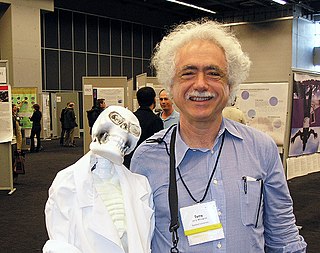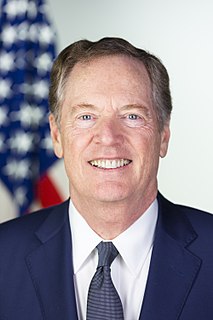A Quote by Joel Miller
Markets are nimble and efficient, gathering the collective but disbursed intelligence of the economy's players and communicating up-to-the-minute realities of prices, product availability, etc. Government is typically cumbersome, plodding, and slow.
Related Quotes
In certain circumstances, financial markets can affect the so-called fundamentals which they are supposed to reflect. When that happens, markets enter into a state of dynamic disequilibrium and behave quite differently from what would be considered normal by the theory of efficient markets. Such boom/bust sequences do not arise very often, but when they do, they can be very disruptive, exactly because they affect the fundamentals of the economy.
To overcome our biological limitations as individuals, we have co-evolved collective systems and capacities - cultural, social, economic, political, scientific, media, educational, public relations, etc. But the flaw in all that is that we have designed them primarily for comfort, profit, power, control, and entertainment rather than for collective intelligence, sanity, and wisdom.
The government can always rescue the markets or interfere with contract law whenever it deems convenient with little or no apparent cost. (Investors believe this now and, worse still, the government believes it as well. We are probably doomed to a lasting legacy of government tampering with financial markets and the economy, which is likely to create the mother of all moral hazards. The government is blissfully unaware of the wisdom of Friedrich Hayek: "The curious task of economics is to demonstrate to men how little they really know about what they imagine they can design.")
A reason to have computers understand natural language is that it's an extremely effective way of communicating. What I came to realize is that the success of the communication depends on the real intelligence on the part of the listener, and that there are many other ways of communicating with a computer that can be more effective, given that it doesn't have the intelligence.
Four things have almost invariably followed the imposition of controls to keep prices below the level they would reach under supply and demand in a free market: (1) increased use of the product or service whose price is controlled, (2) Reduced supply of the same product or service, (3) quality deterioration, (4) black markets.
The analysis in the era of Ronald Reagan and Margaret Thatcher was that government was interfering with the efficiency of the economy through protectionism, government subsidies, and government ownership. Once the government "got out of the way," private markets would allocate resources efficiently and generate robust growth. Development would simply come.
There's whole television stations, magazines, organizations devoted to analyzing every up-and-down twist and turn, IPO, everything that happens in the formal economy. And yet the informal economy, these black and gray markets, actually make up for almost half of the global economy. And there's so little information that we have about them.
To invest successfully, you need not understand beta, efficient markets, modern portfolio theory, option pricing or emerging markets. You may, in fact, be better off knowing nothing of these. That, of course, is not the prevailing view at most business schools, whose finance curriculum tends to be dominated by such subjects. In our view, though, investment students need only two well-taught courses - How to Value a Business, and How to Think About Market Prices.
I think that there has been a long and storied history in America of left-wing movements being actively, systematically, violently destroyed, disrupted, infiltrated, sabotaged, etc. by the U.S. government and its various intelligence agencies and that remains a greater challenge to their existence, traction, popularity, etc. than any sort of ideological infighting.






































